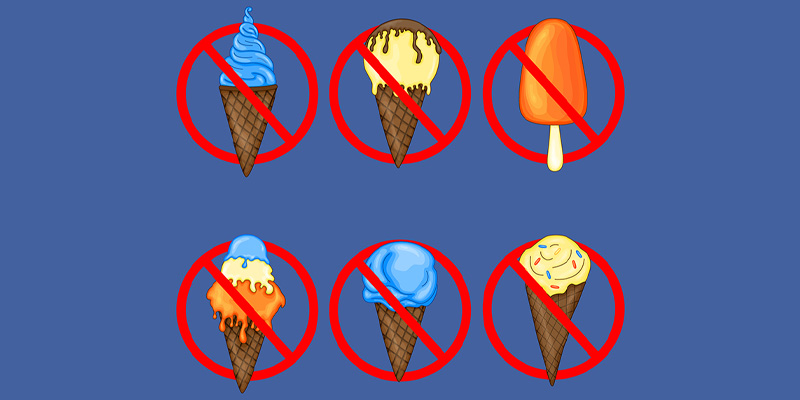Weird Laws in Canada
Canada’s law books have collected their share of quirks — some still enforced, many repealed, and a few that turn out to be myths. Below, we explain where these rules came from, whether they still apply, and why many “weird” laws made sense in their time.
1. Outlandish Federal Weird Laws in Canada’s History
At the national level, Canada’s Criminal Code has housed some outlandish prohibitions over the years. This section explores weird federal laws in Canada – from long-standing oddities to recently repealed relics – and explains their origins and status.
The Law Against Dueling
For well over a century, it was illegal to challenge or accept a challenge to a duel in Canada. This strange prohibition dated back to the 19th century and carried a penalty of up to two years in prison. It may sound like a stupid law in Canada today, but in the 1800s, dueling was a real concern. The law remained in the Criminal Code until 2018, when Parliament finally repealed it as part of a modernization effort. The ban on duels is a prime example of weird Canadian laws that persisted long after their usefulness expired.
Witchcraft and Fortune-Telling Fraud
Another weird law in Canada that survived into the 21st century was the ban on “pretending to practice witchcraft.” Section 365 of the Criminal Code made it a summary offense to fraudulently pretend to use witchcraft or occult powers to defraud someone. The law’s original intent was to protect the public from frauds – for instance, self-proclaimed psychics charging money to lift curses. While it targeted fraud rather than genuine religious practice, it certainly sounded antiquated. In fact, this law was used as recently as 2018 when a Toronto-area woman was prosecuted for bogus witchcraft services. That same year, however, the witchcraft ban was finally repealed alongside the dueling law. It is a telling case of a weird Canadian law catching up with modern values.

“Scaring the Queen” or Alarming the Monarch – A Treasonous Offense
One of the most unbelievable federal laws in Canada made it a serious crime to intentionally alarm or frighten the “monarch.” Stemming from 19th-century treason legislation, this statute dictates that doing anything with intent to “alarm Her Majesty” could result in up to 14 years in prison. While no one expected this law to be applied in modern Canada, it was only put out of the legal code in 2018, actually with the same bill that was responsible for repealing the two previous laws, Bill C-51. Historically, it was enacted after a man aimed an unloaded pistol at Queen Victoria as a scare tactic.
| Law (Criminal Code) | Original Enacted | Repealed? (Year) | Summary |
|---|---|---|---|
| Ban on Dueling | 1892 (Confederation era) | Yes (2018) | Illegal to challenge or accept a duel (max 2-year prison). Repealed as obsolete. |
| Witchcraft Fraud (Pretending Witchcraft) | 1892 (from UK law) | Yes (2018) | Illegal to falsely claim occult powers for fraud. Repealed as outdated. |
| Alarming the Monarch (Scaring the Queen) | 1867 (based on the 1842 UK Treason Act) | Yes (2018) | Illegal to intentionally alarm/terrify the reigning monarch (up to 14 years in prison). |
| Crime Comics Ban | 1949 (amendment) | Yes (2018) | Illegal to publish or distribute comics depicting crime (a product of 1940s moral panic). |
Table 1: Notable Unusual Federal Laws in Canada (Past and Present)
2. Bizarre Provincial Laws and Regulations
The provinces and territories each have their own share of weird laws in Canada. Many of these provincial rules originated decades ago to address local issues yet remain in effect to this day (sometimes unnoticed). In this section, we look at a few bizarre provincial regulations – from agricultural pest control to dairy product protection – and why they came about.
Alberta: Rat-Free Province
Alberta is famous for being “rat-free” and it is not just a boast – it is enforced by law. Since 1950, Alberta’s Agricultural Pests Act has declared the common rat to be a pest that must be eradicated. It is illegal to own or keep a pet rat anywhere in Alberta. The province even maintains a “Rat Control Zone” along the Saskatchewan border, staffed by pest control officers (known colloquially as the “rat patrol”). Thanks to this aggressive program, Alberta has no wild rat population. The law may sound weird or extreme, but it was born from real concerns: in the 1950s, officials feared rats would decimate crops and spread disease if allowed to take hold. Alberta still spends close to $500,000 per year on rat control measures, and it remains proud of having zero rats. For lawyers, this is a reminder that some weird Canadian laws serve very practical, region-specific purposes.
Alberta: Do not Paint That Wooden Ladder
Here is another odd one from Wild Rose Country – according to Alberta’s occupational health and safety regulations, “a person must not paint a wooden ladder.” This sounds like a ridiculously specific and stupid law in Canada, until you hear the reasoning. Painting a wooden ladder could hide cracks, rot, or other structural flaws that would make the ladder unsafe. By keeping ladders unpainted (or only coated with clear varnish), inspectors and users can easily spot damage. This quirky rule was included in Alberta’s Safety Code in 2009 to prevent accidents on work sites. It shows how even technical regulations can come off as weird laws if you don’t know the context and the story behind it. While no “ladder police” are patrolling homes, businesses in Alberta do need to comply with this unique safety mandate.
Quebec: Protecting Butter – The Margarine Color Ban
Quebec historically took its dairy industry so seriously that it banned margarine from looking too much like butter. For many years, it was illegal in Quebec to sell margarine that was dyed yellow (the natural color of butter). Manufacturers had to produce margarine in a white or off-white tone for the Quebec market. This unusual law, introduced in the mid-20th century, aimed to protect Quebec’s butter producers from competition by making margarine less appetizing or confusing for consumers. It qualifies as one of the weird Canadian laws reflecting economic protectionism. The butter-colored margarine ban persisted in Quebec until 2008, when it was finally lifted. By then, it had long been seen as a quirky, outdated regulation – but one that shows how far a province would go to defend its local industry.

Prince Edward Island: No Tall Snowmen
Even innocent winter fun can be subject to bizarre rules. In the small town of Souris, PEI, local law prohibits building a snowman taller than thirty inches (76 cm) on corner lots. Yes, there is a height restriction on Frosty! Or at least, there seems to be one. This is one of those “facts” that gets mentioned a lot, but we couldn’t actually find a valid source to verify it. This peculiar regulation was apparently put in place to prevent large snow figures from blocking drivers’ sightlines at intersections. With PEI’s often narrow roads, a giant snowman on a corner could pose a hazard. While it might only be a local law (if even that), it is technically still on the books – a weird law in Canada that amuses residents each winter. The “short snowman rule” is a good example of how extremely specific local safety concerns can result in laws that sound hilarious out of context.
New Brunswick — You must be this high to trick or treat! Halloween age limit and curfew
In Bathurst, trick-or-treating is regulated by a local bylaw. Kids can go door-to-door on October 31, but not past 8:00 p.m., and face coverings aren’t allowed in public after 8:00 p.m. The bylaw also says no one 16 or older can trick-or-treat or dress up in masks. Violations carry modest fines (generally $80–$200). The rule has obviously been drawing national attention over the years, but local officials say it’s about a short window for safe, orderly fun.
| Province / Territory | Weird Law or Regulation | Rationale (Why It Exists) | Current Status |
|---|---|---|---|
| Alberta | Illegal to import, sell, or own pet rats | Keep the province rat-free (protecting agriculture & health) | Enforced (since 1950) |
| Alberta | It is illegal to paint a wooden ladder (OHS Code) | Ensure ladder safety by not hiding cracks | Enforced (safety regulation) |
| Quebec | Margarine could not be yellow | Protect dairy farmers by distinguishing butter vs. margarine | Repealed in 2008 |
| Prince Edward Island | Snowmen over thirty″ feet tall banned on corner lots (Souris) | Prevent view obstruction & accidents at intersections | Enforced (rarely, local bylaw) |
| New Brunswick | No trick or treating past 8 PM, or if you’re older than 16 | Prevent public alarm; keep Halloween safe | Enforced in some towns (seasonal bylaw) |
Table 2: Examples of Weird Provincial/Territorial Laws in Canada
3. Strange Municipal Bylaws That Defy Logic
When it comes to weird laws in Canada, many of the strangest are at the city or town level. Municipal councils have enacted plenty of quirky bylaws tailored to local annoyances – some of which sound downright silly today. In this section, we highlight a few standout examples of bizarre city regulations and how they affect residents.
No Whistling at Night – Petrolia, Ontario
Petrolia, a small town in Ontario, made headlines for a noise bylaw that banned whistling. According to the town’s bygone bylaw Article 3, Section 772.3.6, “yelling, shouting, hooting, whistling or singing is prohibited at all times” in public. The rule was intended to curb excessive noise during the night (11 p.m. to 7 a.m.), but the written text did not specify the timeframe, effectively outlawing casual whistling anytime. This weird Canadian law left people joking that Petrolia was the town with “no fun allowed.” In practice, enforcement was only for late-night disturbances, and the bylaw was eventually amended in 2009 to be more reasonable. Still, the tale of Petrolia’s anti-whistling law endures as a favorite weird law trivia – and a reminder to draft bylaws carefully.
Toronto — Dragging a dead horse down the street: is it a thing?
One of the most famous weird Canadian laws comes from Toronto, or so it seems. The story goes that an old city rule made it illegal to drag a dead horse down Yonge Street on Sundays. It might seem unbelievable, but only because it is! Unbelievable and untrue. This one pops up on trivia lists, but there’s no trace of a Toronto bylaw singling out dead horses on Yonge Street, Sunday or otherwise. It reads like a Victorian-era tall tale that stuck around. If someone tried it today, a bunch of general public nuisance, animal disposal, and traffic provisions would apply—but not a Yonge Street on Sundays special. The city’s own historical by-law archive doesn’t support the claim, and local urban-history folks treat it as myth.
Oak Bay, BC — Keep your parrots quiet, folks!
Oak Bay’s Anti-Noise Bylaw isn’t “about parrots,” but it does ban keeping “any animal or caged bird” that makes frequent noise liable to disturb the neighbours. In practice, a shrieking parrot can trigger a ticket. Maximum fines under the bylaw run up to $1,000. It’s a general noise-control rule, not a parrot-only prohibition, although you’re more likely to hear about the parrot thing a lot more, for some reason.

Ottawa — the Bank Street ice-cream ban: urban flavor or true weird law?
There is a well-known story about ice cream being banned on Sundays, or at least that it used to be banned. Ottawa residents and visitors might be surprised to hear about the so-called Ottawa “blue law” that forbade eating ice cream on Bank Street on Sundays, part of old Sabbath observance rules. The reason for their surprise would be obvious, though: there never was a law about ice cream (on a specific street or not). Urban myth ice cream laws for the win!
Climbing Trees Is Off-Limits – Oshawa, Ontario
Think twice before you channel your inner child in Oshawa’s parks. This Ontario city has a bylaw that prohibits anyone from climbing a tree in a municipal park or attaching anything to a tree on city property. The intent is to prevent injuries and protect the trees from damage. While it might feel like a weird Canadian law, city officials have defended it as necessary for public safety (and to avoid liability). So, yes, technically, a kid shimmying up a park oak tree in Oshawa is doing something illegal. It is a classic weird Canadian law in that it surprises people, yet it arose from straightforward concerns. The next time you see a “No Climbing Trees” sign, you will know Oshawa is serious!
| City / Town | Weird Bylaw (Summary) | Potential Penalty | Note |
|---|---|---|---|
| Petrolia, Ontario | No whistling, singing, or shouting late at night (formerly a 24/7 ban) | Fine (rarely enforced) | Aimed at reducing nighttime noise, the bylaw was narrowed in 2009. |
| Toronto, Ontario | Illegal to drag a dead horse down Yonge St. on Sunday | Urban myth | Outdated 19th-century rule still on the books; no modern relevance. |
| Oak Bay, BC | Noisy pet parrots can incur fines | Any pets, fined up to $1,000 | Ensures quiet in residential areas; part of the animal noise control bylaw. |
| Ottawa, Ontario | (Historic) No ice cream cones on Bank St. on Sunday | Urban myth | The old Sabbath “blue law” has been repealed; now legal. |
| Oshawa, Ontario | No climbing trees or affixing things to trees in parks | Fine (up to $250) | Safety rules to prevent falls and protect trees; occasionally enforced. |
Table 3: Quirky City Bylaws in Canada and Their Penalties
4. Why Do These Weird Canadian Laws Exist?
Reading about all these weird laws in Canada, one might wonder how they ever happened. In most cases, what looks like a silly or stupid law had a sensible goal at one time. Many weird laws and regulations started as responses to real problems:
- Changing Social Norms: Laws against dueling, witchcraft, or swearing in public parks reflected the social and moral standards of their era. As society’s values shifted, these rules became obsolete or even laughable.
- Public Safety: A lot of odd bylaws (no tall snowmen, no dogsleds on sidewalks, no climbing trees) were enacted to prevent injuries and accidents. The intentions were good, though the execution sometimes seems overzealous.
- Economic Protectionism: Some strange laws (like Quebec’s margarine color ban or interprovincial liquor transport rules) were about protecting local industries or government monopolies. They appear weird now that markets have opened.
- Local Pet Peeves: Municipal councils often pass bylaws to address extremely specific nuisances – noisy animals, messy yards, and pranksters. When isolated in a list, these hyper-local rules sound ridiculous, but they mattered to that community at the time.
Understanding the context helps legal professionals appreciate why a bizarre law was adopted and whether it is still relevant. As a lawyer or law firm manager, it is also a reminder that laws must evolve with the times. Staying aware of outdated or eccentric laws can prevent inadvertent compliance issues and spur efforts to update books.
5. Modernizing the Law: Repeal and Reform of Silly Rules
The good news is that Canadian lawmakers do periodically prune away the truly unnecessary laws. In recent years, the federal government passed bills repealing a raft of antiquated provisions – including the ones on dueling, witchcraft, and blasphemy noted above. Provinces and cities have also updated many rules (for example, Petrolia softened its noise bylaw, and Ottawa long ago scrapped its Sunday ice cream ban). This modernizing trend acknowledges that law should keep pace with contemporary values and evidence.
However, plenty of weird Canadian laws are still technically in force simply because they have not caused enough fuss to be addressed. They linger in legal texts long after their heyday. Lawyers are unlikely to encounter these oddball laws in practice – except as trivia or in obscure cases – but it is worthwhile to know they exist.
The persistence of weird laws underscores the importance of continuous legal review and reform. It also gives Canadian lawyers a reason to chuckle and appreciate the colorful evolution of our legal system.
Final Thoughts
Canada’s legal landscape is not all serious statutes and high-minded regulations – it also contains a fair share of quirks. From weird laws in Canada about snowmen and pet rats to even more archaic criminal offenses that read like satire, these rules add character to the law books. For lawyers and law firm leaders, exploring these odd laws is not merely entertaining trivia; it is a window into the history and logic (or lack thereof) behind our legal system.
The weird Canadian laws and regulations we have discussed highlight an important lesson: laws evolve alongside society, and what once seemed necessary might later appear absurd. Staying informed about even the obscure corners of the law can help legal professionals avoid pitfalls and push for change when needed. So, the next time you hear about stupid laws in Canada, remember that every law – no matter how bizarre – really has a story to tell about the people and times that created it.
AI-Assisted Legal Documents Made Simple
Froms.RunSensible is the legal forms arm of RunSensible, a service that offers AI-assisted court forms and legal documents for users in jurisdictions across Canada and the U.S. The platform helps people find the right forms, guides them through filling them out with plain-English explanations, performs quality checks, and lets them download ready-to-file versions. It operates on a clear one-time pricing model (no surprise subscriptions) and maintains its legal templates via in-house legal editors and tech staff to ensure they stay accurate and up-to-date.
FAQs
What is the weirdest law in Canada still in effect today?
It is hard to crown a single “weirdest” law, but a top contender is Alberta’s law making it illegal to own pet rats. While it sounds bizarre, this rule has kept Alberta rat-free for decades. Another odd law technically still on the books makes it illegal to intentionally scare the monarch (the King or Queen of Canada) – a holdover from 19th-century treason laws. Of course, it is extremely unlikely anyone will be charged under that today.
Are the “stupid laws in Canada” I see online real?
Some are real, and some are myths or exaggerated. Canada certainly has or had laws that seem stupid or funny – for example, it was once illegal to eat ice cream on Bank Street in Ottawa on Sundays, and Toronto had a bylaw about not dragging dead horses on Yonge Street. Those were real (though outdated) rules. On the other hand, certain viral “weird laws” do not hold up to fact-checking. There is no evidence of any law against painting your garage door purple in Kanata, Ontario – that is an urban myth.
Do people get prosecuted for these weird Canadian laws?
Rarely, if ever, today. The strangest laws in Canada are often archaic or just not enforced. Many odd laws are dormant – they exist on paper but are not actively used by police. For instance, no one has been charged for dueling or selling crime comics in modern times. Municipal oddities like Petrolia’s whistling ban or Oshawa’s tree-climbing rule are usually enforced only if someone is causing a real problem. (Alberta’s rat ban is an odd law actively enforced by provincial pest control authorities, but average people do not end up in court for it.)
Why haven’t these weird and outdated laws been removed?
Law reform takes time, and obscure rules can be easy to overlook. If a weird law is not causing actual harm, it tends to be low priority for legislators to repeal. Lawmakers focus on pressing issues, and antiquated provisions sometimes slip through the cracks. That said, there have been clean-up efforts – for example, in 2018, the federal government repealed several obsolete Criminal Code sections.
How can lawyers keep track of obscure or strange laws?
The best approach is to stay informed through reliable legal research tools and updates. Unusual laws can hide in niche regulations, so using up-to-date legal databases and monitoring government announcements is important. Many law firms have internal knowledge bases or practice management software to track legal changes. It also helps to network with other lawyers and follow legal news, as quirky local bylaws or odd cases often get discussed in the community.
References
- https://www.remiellaw.ca/post/no-whistling-no-singing-no-fun-petrolia-s-old-school-noise-law
- https://www.theguardian.com/world/2018/nov/15/alberta-rat-catcher-phil-merill-canada-pest-free
- https://laws-lois.justice.gc.ca/eng/acts/C-52/
- https://blog.remax.ca/canadas-weirdest-homeowner-laws/
- https://www.canadianaffair.com/blog/top-10-quirky-canadian-laws-origins
- https://richmondsentinel.ca/article-detail/58339/i-cant-believe-thats-a-law-pei-edition
- https://farandwide.com/s/weird-canadian-laws/
- https://amberstudent.com/blog/post/weirdest-laws-in-canada-that-will-surprise-you
Contents
- 1. Outlandish Federal Weird Laws in Canada’s History
- 2. Bizarre Provincial Laws and Regulations
- 3. Strange Municipal Bylaws That Defy Logic
- 4. Why Do These Weird Canadian Laws Exist?
- 5. Modernizing the Law: Repeal and Reform of Silly Rules
- Final Thoughts
- AI-Assisted Legal Documents Made Simple
- FAQs
- References


